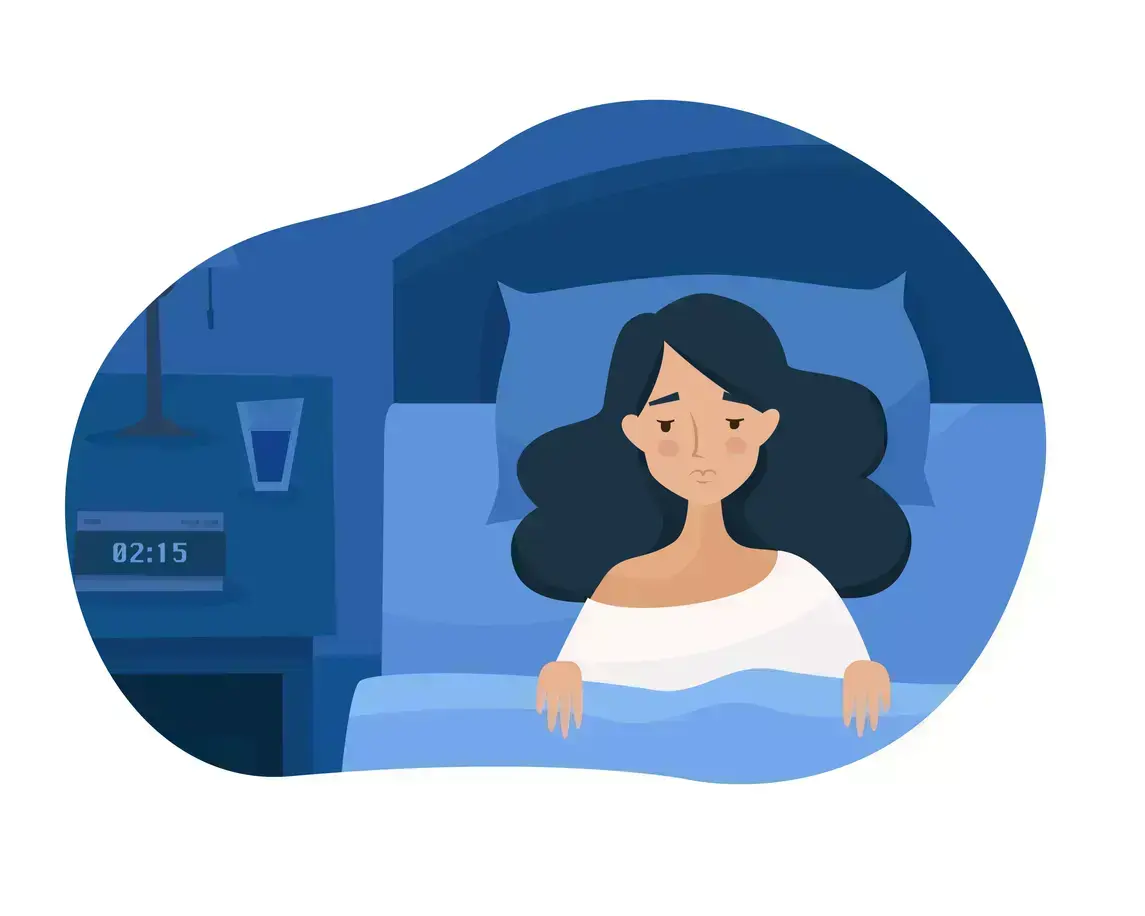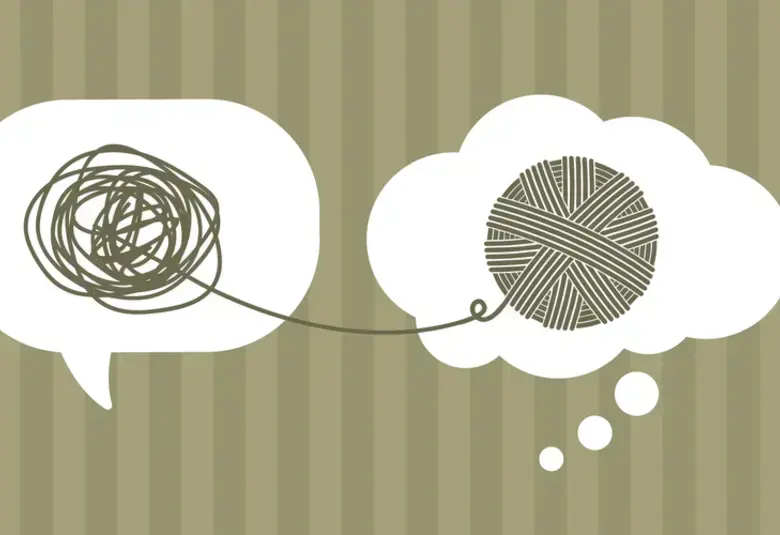Poor sleep is a modifiable risk factor linked to depression, schizophrenia, and chronic physical diseases – and inflammation may be a mediating factor. APAAM 2021 also heard evidence suggesting that intervention to improve Morning Activity Disorder (MAD) may be a very sane idea.
수면 부족은 우울증, 조현병, 만성 신체 질환과 관련된 경감 가능한 위험 요소이며, 염증은 매개 요인이 될 수 있다. APAAM 2021은 또한 아침 활동 장애(MAD)를 개선하기 위한 중재가 매우 온당한 아이디어일 수 있다는 증거를 들었다.
“Difficulty getting going”, is how many of us describe not being a morning person. Morning Activation Deficit (MAD) is a more technical description. Whatever the terminology, the phenomenon is frequent in depression.1,2
“시작하기 어렵다”는 것은 얼마나 우리 중 많은 사람들이 아침형 인간이 아니라는 것을 설명하는 말이다. 아침 활동 장애(MAD)는 보다 기술적인 설명이다. 용어가 무엇이든 이 현상은 우울증에서 자주 발생한다.1,2
It has been thought that lack of early morning activation is a consequence of depression, but perhaps the reverse is true: depression could be a result of lack of morning activation. If so, encouraging morning activity through scheduling tasks may be a helpful therapeutic approach, suggested Stephen Smagula (University of Pittsburgh, USA).
이른 아침 활동의 부족은 우울증의 결과라고 생각되어 왔지만 아마도 그 반대가 사실일 것이다. 우울증은 아침 활동 부족의 결과일 수 있다. 그렇다면, 일정 작업을 통한 아침 활동을 장려하는 것이 도움이 되는 치료적 접근이 될 수 있다고 스티븐 스마굴라 (Stephen Smagula, 미국 피츠버그 대학교)는 제안했다.
Low morning activity may lead to depression by allowing more time for thinking about negative emotional content
적은 아침 활동은 부정적인 감성 컨텐츠에 대해 생각할 시간을 더 많이 허용함으로써 우울증으로 이어질 수 있다
A neurobiological basis in rumination
반추의 신경생물학적 근거
Evidence for the hypothesis comes from people who care for patients with dementia and are at risk of depression. Carers with mild-moderate symptoms were compared with those who had few or none.
이 가설의 증거는 치매 환자를 돌보고 우울증에 걸릴 위험이 있는 사람들로부터 도출된다. 경도-중등도의 우울증상을 보이는 보호자(간병인)를 severity가 덜 심하거나 증상이 없는 간병인과 비교했다.
- Actigraphy data confirmed the association between morning inactivity and depression: carers with depressive symptoms were significantly less active than controls, but only during the period 8-10 am.3
- Actigraphy 데이터는 아침의 비활동과 우울증 사이의 연관성을 확인했다. 우울증 증상이 있는 간병인은 대조군보다 활동성이 현저히 낮았지만 오전 8-10시 동안에만 활동적이었다.3
- Morning inactivity predicted the persistence of depressive symptoms six months later. Carers with active mornings seemed to be protected against developing symptoms.3
- 아침의 비활동은 6개월 후 우울 증상의 지속을 예측하였다. 활동적인 아침을 보내는 간병인은 증상의 진행으로부터 보호되는 것처럼 보였다.3
- Support for a neurobiological basis came from functional MRI. “Non-morning”carers had greater resting-state connectivity between the amygdala (involved in fear and stress responses) and the ventral posterior cingulate cortex (involved in autobiographical memory) than morning-type carers.4 Greater amygdala-cingulate connectivity correlated with depressive symptoms.
-
신경생물학적 기초에 대한 지지는 기능적 MRI에서 생겨났다. "아침형이 아닌" 간병인은 아침형 간병인보다 편도체(두려움과 스트레스 반응에 관여)와 복측후 대상피질(자서전적 기억에 관여) 사이의 휴지 상태의 연결성이 더 높았다.4 편도체-대상 연결성은 우울증 증상과 더 관련이 있다.
This pathway may be related to rumination, Professor Smagula speculated. Lack of morning physical activity could contribute to depression by allowing more time for thinking about negative emotional content.
이 경로는 반추와 관련이 있을 수 있다고 스마굴라(Smagula) 교수는 추측했다. 아침에 신체 활동이 부족하면 부정적인 감정적 컨텐츠에 대해 생각할 시간을 더 많이 주어져서 우울증을 유발할 수 있다.
Intervention based on this hypothesis is feasible, he continued. In a pilot study in ten caregivers, therapist-led activity scheduling and monitoring for nine weeks led to a decrease in self-reported morning activity deficits.
그는 이 가설에 기반한 중재가 가능하다고 말했다. 10명의 간병인을 대상으로 한 파일럿 연구에서 치료사가 주도하는 9주간의 활동 계획 및 모니터링은 자가 보고하는 아침 활동 결손의 감소로 이어졌다.
In schizophrenia, the interface between disturbed sleep, inflammation and aging is a new target for intervention
조현병에서 수면 장애, 염증 및 노화 사이의 인터페이스는 중재의 새로운 대상이다
Poor sleep a modifiable factor related to excess mortality
초과 사망률과 관련된 경감 가능한 요소인 수면 부족
The fifteen-year (and growing) gulf in life expectancy between people with and without schizophrenia arises largely from a greater susceptibility to chronic diseases of aging,5 Ellen Lee (University of California San Diego, USA) told the session on sleep and mental health.
조현병이 있는 사람과 없는 사람 사이의 15년 (더 벌어지는) 수명 격차는 주로 노화로 인한 만성 질환에 대한 더 큰 감수성 때문에 발생5한다고 엘런 리(Ellen Lee, 미국 캘리포니아 샌디에고 대학)가 수면과 정신건강 세션에서 말하였다.
Inflammatory processes have been implicated in this earlier onset of age-related pathology (or “inflammaging”) in people with schizophrenia. And poor sleep seems to contribute, she said. Sleep problems affect 30-80% of people with schizophrenia, precede the onset of symptoms, and are associated with worse quality of life and cognitive function.6
염증 과정은 조현병 환자에게 있어 노화 관련 병리(또는 "염증")의 조기 발생과 관련이 있다. 그리고 수면 부족도 한 몫 하는 것 같다고 그녀는 말했다. 수면 문제는 조현병 환자의 30-80%에 영향을 미치고 증상이 시작되기 전에 나타나며, 삶의 질 및 인지 기능 악화와 관련이 있다.6
Baseline data on a longitudinal cohort of people with schizophrenia and controls cast light on these associations:6
조현병 환자 및 대조군의 종적인 코호트에 대한 기초 데이터는 이러한 연관성에 실마리를 준다: 6
Findings implicate poor sleep and inflammation in cognitive and metabolic dysfunction
연구 결과는 인지 및 대사 기능 장애에 수면 부족과 염증이 원인임을 보여준다
- Compared with controls, people with schizophrenia slept longer and had poorer sleep quality
-
대조군과 비교하여 조현병 환자는 더 오래 잤고 수면의 질이 더 낮았다.
- In people with schizophrenia, poor sleep quality was associated with higher levels of the inflammatory markers C-reactive protein and interleukin-6
-
조현병 환자에서 낮은 수면의 질은 염증 지표인 C-반응성 단백질과 인터루킨-6의 높은 수준의 수치와 관련이 있었다.
- High marker levels were associated with slower cognitive processing, even in the absence of insomnia
- 높은 마커 수치는 불면증이 없는 경우에도 느려지는 인지 처리와 관련이 있다.
- Both poor sleep and raised CRP and IL-6 were more frequent in women than men
-
수면 부족과 CRP 및 IL-6 상승은 모두 남성보다 여성에서 더 빈번했다.
- There is a suggestion that poor sleep is associated with metabolic dysfunction evident in higher levels of HbA1c.
-
수면 부족은 높은 수준의 HbA1c에서 대사 기능 장애와 눈에 띄는 관련성이 있다는 의견이 있다.
Preliminary data also suggest that obstructive sleep apnea is common among people with schizophrenia in the San Diego cohort. It was found in 48% of subjects, but only 6% had been formally diagnosed. Sleep apnea in the study was associated with inflammation and slower processing.
예비 자료에 따르면 폐쇄성 수면 무호흡증은 샌디에고 코호트의 조현병 환자에게 흔하다. 대상자의 48%에서 발견되었지만 공식적으로 진단된 경우는 겨우 6%에 불과했다. 연구에서 수면 무호흡증은 염증 및 느려진 인지 처리와 관련이 있었다.
Our correspondent’s highlights from the symposium are meant as a fair representation of the scientific content presented. The views and opinions expressed on this page do not necessarily reflect those of Lundbeck.




